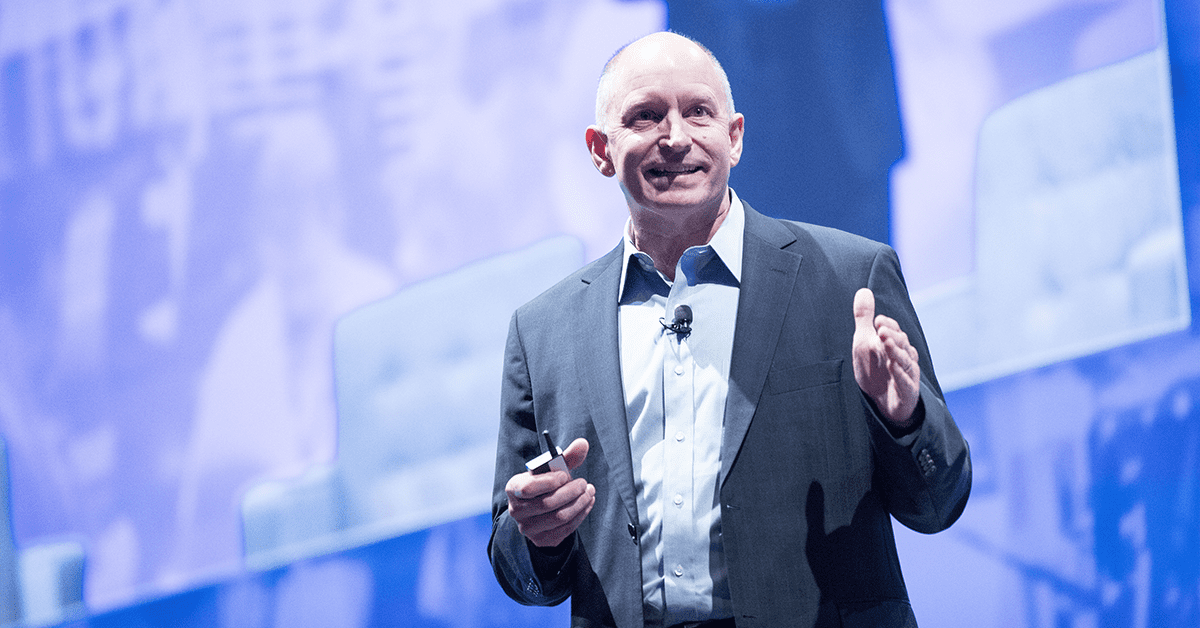There was a special buzz at ACT Expo 2019. The level of innovation and technological advancement taking place within the market was palpable, as is the significant increase in investment in advanced clean technologies and fuels for the commercial fleet sector.
One of the many key takeaways was that the commitment and investment we are seeing from customers, OEMs, component suppliers, fuel and infrastructure suppliers, and a broad range of stakeholders, is now being driven as much by environmental sustainability as has historically been the case with economic sustainability.
One of the key takeaways was that the commitment and investment is now being driven as much by environmental sustainability.
A few short years ago, with diesel prices nearing $5.00/gallon, interest and investment was primarily driven by the opportunity for fuel cost savings. As illustrated by ACT Expo’s opening speaker, Jay Craig, president and CEO of Meritor, increasing global air quality and climate regulation has changed this dynamic and is beginning to turbocharge this sector.
Following the opening address, an all-star panel of industry leaders featuring, Paul Rosa, senior vice president of vehicle supply and planning at Penske Truck Leasing; Peter Voorhoeve, president of Volvo Trucks North America; Ike Brown, president, and co-owner of NFI; and Trevor Milton, CEO of Nikola Motor Company, weighed in on the balance between economic and environmental sustainability. A key conclusion from the discussion was that increased societal and corporate commitment to cleaner transportation solutions is an ever-more important part of the discussion these days.
And to put a final point of emphasis on the opening session, in his keynote address, Roger Nielsen, president and CEO of the largest commercial vehicle manufacturer in North America, made Daimler’s position resoundingly clear: battery-electric vehicles are the solution to achieve emissions- free commercial transportation.
The excitement, the innovation, and the transformation taking place within this industry was also visible on the ACT Expo show floor, which was packed with an array of new products and technologies for the commercial fleet sector. From near-zero natural gas and propane solutions, to hydrogen fuel cell and a range of plug in battery electric vehicles, there was no shortage of eye candy for the transportation techno-enthusiast.
The excitement, the innovation, and the transformation taking place within this industry was visible on the ACT Expo show floor.
While innovation and investment are being driven by an increasing focus on environmental sustainability, scaled purchase orders must be driven by consistent and proven ROI and TCO.
Throughout the remainder of 2020, a number of fuels and technologies will begin to make their way into daily fleet operations across a range of pilot programs, demonstration projects, tests, trails and deployments. ACT Expo 2020 will provide us with an opportunity to gather around again and evaluate the progress being made. A year from now, we will begin to understand if the advertised economic value proposition is being achieved via ROI and TCO, and thus, what is the scaling opportunity for these exciting clean transportation solutions.
Unfortunately, a year’s worth of data is only a starting point. Fleet customers require more certainty than can be achieved via a few dozen deployments over the course of a year. Discerning fleet customers need data and information, and a lot of it. They need to be assured that the advertised benefits of these technologies will translate into real cost and operational benefits for them. They need certainty that the fueling infrastructure can be installed and the cost of delivered fuel will be less. They need to feel confident that these vehicles can complete the route, that the maintenance costs will be less, that parts will be available, and that there are solid answers to questions about residual value. Exploring these issues and providing critical answers to fleet operators is a core theme of each year’s ACT Expo programming.
In the interim, we have launched the LAZER (Low and Zero Emission Readiness) Initiative, which is an innovative new project whereby GNA and University of California Riverside CE-CERT will work to validate and verify the operational and environmental performance and the TCO of new technologies entering the market.
It’s exactly these kinds of new and unique partnerships and initiatives that equip fleet owners and operators with the knowledge, confidence, and crucial information they need to make long-term investment decisions. Because, if we can prove it, we can scale it. And scaling up our collective use of clean transportation solutions is something we can all agree upon. But to do so, we must first demonstrate the economic sustainability of these environmentally sustainable solutions.


